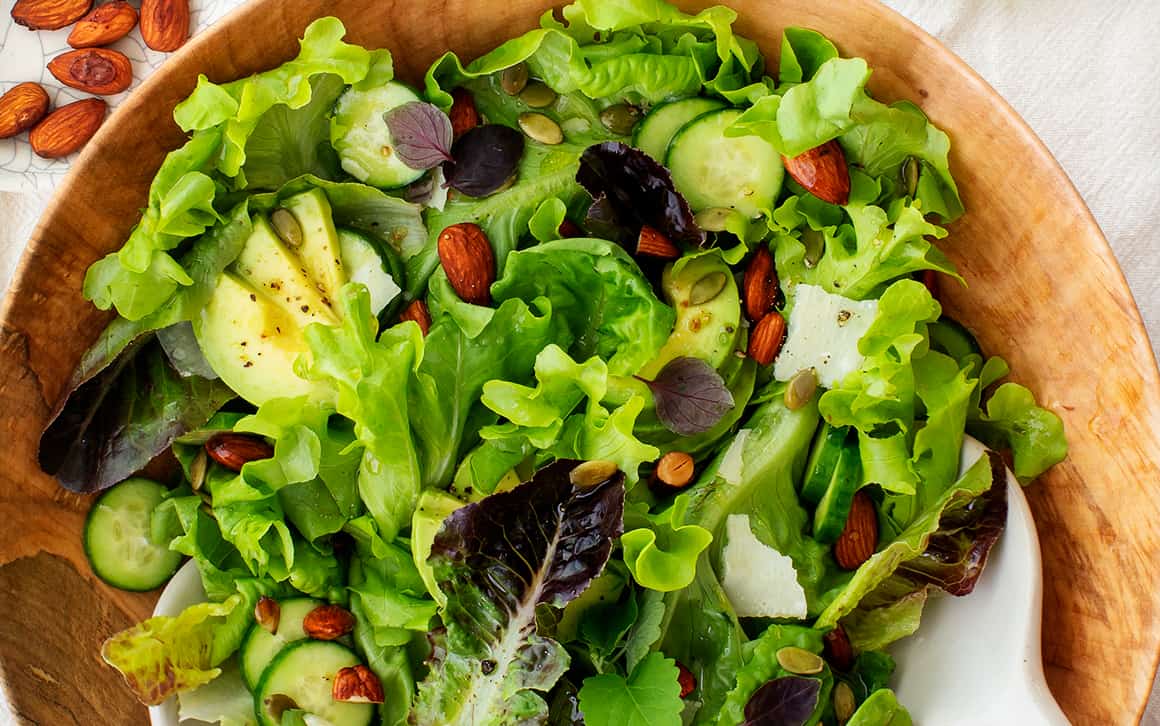In the vast tapestry of culinary delights, salads have emerged as a timeless and versatile dish that not only tantalizes taste buds but also nourishes the body with a plethora of health benefits. A harmonious medley of fresh vegetables, fruits, proteins, and dressings, salads have transcended their origins as mere side dishes to become a central component of a balanced and nutritious diet. This article embarks on a journey to uncover the multifaceted advantages of salads, delving into their nutritional richness, impact on overall well-being, and their role in fostering a sustainable and conscious lifestyle.
At its core, a salad represents a nutritional powerhouse, drawing together an array of essential nutrients into a single, vibrant plate. The symphony of colors, textures, and flavors woven into a salad reflects nature’s generosity in providing an array of vitamins, minerals, antioxidants, and fiber that contribute to the betterment of human health.
Leafy greens, such as spinach and kale, infuse salads with a substantial dose of vitamins A, C, and K, in addition to vital minerals like iron and folate. These nutrients play pivotal roles in maintaining healthy skin, bolstering the immune system, and facilitating blood clotting. The crimson allure of tomatoes isn’t just visual; it’s a sign of the presence of lycopene, an antioxidant linked to the reduction of certain chronic diseases.
Proteins, a cornerstone of a well-rounded diet, find their place in salads through elements like grilled chicken, tofu, beans, or nuts. These protein sources are instrumental in muscle repair, contribute to a sense of fullness, and support various physiological functions. The amalgamation of such nutrients transforms a simple salad into a substantial and nourishing meal, catering to both vegetarians and meat enthusiasts.
The benefits of salads extend far beyond the nutritional realm, touching upon various facets of holistic health. One notable advantage is their potential role in weight management. When thoughtfully composed with nutrient-dense ingredients, salads can contribute to satiety due to their fiber content, thus curbing overeating and aiding in weight control.
The fiber content found in vegetables and fruits also ushers in benefits for digestive health. By promoting regular bowel movements and preventing constipation, fiber plays a crucial role in maintaining optimal gastrointestinal function. The water content in these plant-based components further contributes to hydration, which is pivotal for effective digestion.
Embracing salads as a dietary staple holds the promise of enhancing cardiovascular health. A diet rich in vegetables and fruits, which are integral to salads, is associated with lower cholesterol levels and improved blood pressure, thereby reducing the risk of heart diseases. The antioxidants abundant in these ingredients contribute to overall heart well-being.
For individuals grappling with diabetes, salads can serve as a supportive dietary option. Many salad ingredients possess a low glycemic index and are packed with fiber, enabling better regulation of blood sugar levels. This quality aligns with the needs of individuals managing diabetes, potentially assisting in their health journey.
The advantages of salads are not confined to the physical domain; they extend their influence to cognitive function. Antioxidants, prevalent in components like avocados and nuts, have been linked to augmented cognitive capabilities and a reduced risk of cognitive decline, reflecting the intricate connection between dietary choices and mental vitality.
Beyond their nutritional and health merits, salads are a sensorial delight, appealing to the senses through their colors, textures, and flavors. The crunch of lettuce, the crispiness of croutons, the creaminess of dressings, and the explosion of flavors from diverse ingredients intertwine to create a multisensory culinary experience.
Salads further unlock a realm of culinary creativity, presenting a canvas for experimentation. The plethora of ingredients available facilitates endless combinations, ranging from traditional Caesar salads to innovative fruit-infused variations. This adaptability ensures that salads can be tailored to cater to individual palates, dietary requirements, and cultural inclinations.
In an era where ecological consciousness is gaining prominence, salads also offer a pathway to sustainability. The pivot towards plant-based diets, exemplified by salads, plays a role in mitigating the environmental impact of food production. The cultivation of vegetables and fruits demands fewer resources compared to the rearing of livestock for meat, aligning salads with environmentally conscious practices.
The emphasis on locally sourced and seasonal ingredients, a common practice in salad preparation, further contributes to reducing the carbon footprint associated with food production. By minimizing the need for energy-intensive transportation and storage methods, salads embrace sustainability as a vital component of their identity.
Salads, as a culinary phenomenon, traverse cultural borders, encapsulating both their global appeal and their significance across diverse cuisines. While ingredients may vary based on regional availability and preferences, the essence of combining fresh and nutritious components remains a universal constant. From the Italian caprese salad to the Mexican ensalada de nopales, each culture contributes its unique twist to the art of salad-making.
In culmination, salads aren’t mere dishes; they represent a holistic package of well-being, sustainability, and culinary ingenuity. The amalgamation of nutrients, colors, textures, and flavors in salads translates into an array of benefits encompassing weight management, heart health, digestion, and overall vitality. Beyond their nutritive value, salads hold the potential to drive a sustainable lifestyle, aligning dietary choices with ecological responsibility.
Whether embraced as a main course, a side dish, or an appetizer, salads transcend their gastronomic role. From the simple green salad to the intricately crafted gourmet ensemble, they cater to the health-conscious and those seeking an enriching culinary voyage. As we navigate the intricate interplay between diet, body, and planet, salads stand as a beacon of wellness, deserving a cherished place on our plates and in our lives.

